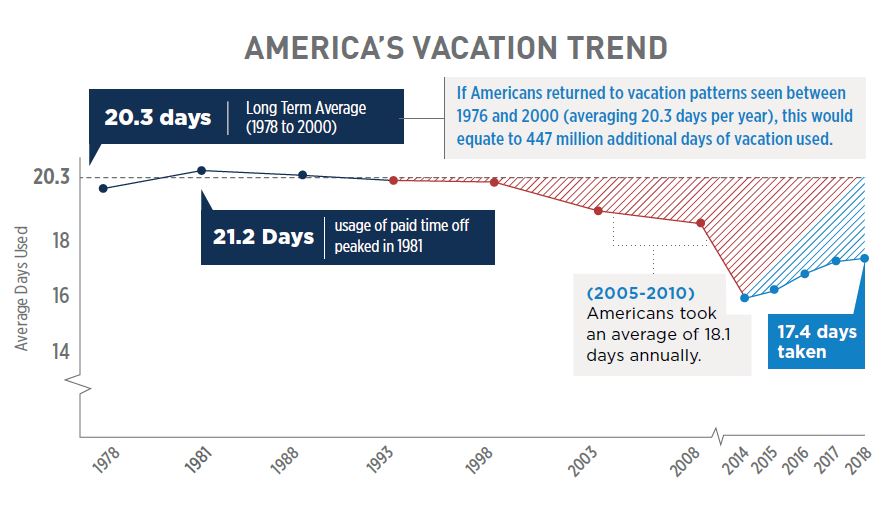A couple of months ago, I was asked to join a task group at work to help evaluate a variety of workplace initiatives. For reasons I outline below, our bank was looking for ways to improve employee work-life balance.
I like helping people and the opportunity to introduce changes that would benefit the entire organization sounded very attractive.
Unsurprisingly I was pretty hyped at the project, even if it meant tackling a few extra hours onto my work week.
Like many other established industries, investment banking has struggled to attract and retain top junior talent over the past few years. Right after the crisis, there was a certain stigma attached to working in financial services firms that were perceived to have crippled the economy.
Everyone expected this to be a temporary effect. We thought that the dynamic nature of the job, the learning opportunities (and frankly, the pay) would again make the industry as attractive as it was in the pre-crisis days.
But it wasn’t meant to be. More than a decade after the crisis, talented graduates continue to prefer the technology and start-up sectors when they enter the workforce. I suppose the opportunity to work in ultra-modern offices with bean bags, beer fridges, and foosball tables is too good to pass up.
Aside from sleeping pods and ping pong tables, the one perk that has generated a lot of airtime recently is the introduction of unlimited holiday allowance by the big tech majors on the West Coast.
Companies like Dropbox, Hubspot and Workday have all introduced unlimited time off over the past three years. Microsoft happens to have acquired not one, but two companies with unlimited vacation policies (LinkedIn and GitHub).
Even good old GE has jumped on the bandwagon. Why not us, we thought – and added an unlimited holiday allowance to the long list of initiatives to evaluate.
Uncovering The Downsides Of Unlimited Holiday
Unfortunately, our enthusiasm waned almost as quickly as we started looking at unlimited time off policies in more detail.
As a matter of fact, our task group unanimously agreed that the unlimited holiday “perk” is one of the most devious contraptions we have come across in our lives.
It’s packaged up as a lifestyle-maximizing, millennial-appealing, isn’t-work-all-about-play initiative. In truth, it’s a “benefit” where the employer captures the bulk of the benefits.
If you are an employer, introducing an unlimited time off policy provides you with immediate – and meaningful – improvements in your cost structure:
- You can stop accruing holiday pay expenses at the end of their fiscal year
- More importantly, you can stop PAYING employees for vacation time not taken when they resign from their role. To make matters even worse, if an employee is terminated, she would no longer be eligible for a payout for forgone holiday.
- You benefit from a reduction in HR and management costs related to authorizing and tracking holiday usage
- You can optimize your marketing spend. In a world where employees increasingly favour perks over compensation, the brand-boosting effect of an unlimited holiday allowance can be massive.
However, if you are an employee, an unlimited holiday allowance has a very different set of practical implications.
The Downsides Of Unlimited Holiday Allowance For Employees
Firstly, you would probably feel compelled to follow the lead set by your manager or other colleagues. After all, do you really want to be “that guy” who took seven weeks off last year while everyone else took three?
Secondly, your colleagues might become resentful of having to cover for you every single time you are away.
Finally, you run a serious risk that taking extra holiday will become a negative factor in your year-end performance evaluation – and bonus.
You can see how unlimited holiday allowance can be a real win-win… for the employer!
In companies with a fixed paid leave policy, everyone knows where they stand. No one judges or discriminates employees for taking their full holiday allowance, whatever it may be. Everyone is likely to take roughly the same amount of time off and no one feels mistreated.
Unlimited time off throws a massive wrench into the entire equation. There are plenty of great things to learn from our friends in the US, but taking holiday is not one of them.

Source: Random blog on the Internet, but looks accurate
No wonder Americans continue to take ever less time off!

Source: https://www.ustravel.org/toolkit/time-and-vacation-usage
Not only they take fewer days than most other countries, but over the long run, the trend is a declining one. It remains to be seen whether the slight recovery in the past few years is a permanent effect or a temporary blip.
The ability of US corporations to extract ever greater gains from their labour force does not cease to amaze me. This is actually one of the reasons my investment portfolio is comprised mostly of US stocks. I have yet to come across another system where capital is so good at taking advantage of labour.
Would You Be Able To Take Advantage Of An Unlimited Holiday Policy?
I can see how in some situations, an unlimited holiday allowance could make sense for the employer as well as the employee:
In organizations and roles where performance measurement is very metric-driven and can therefore be evaluated with a high degree of objectivity.
You either hit your sales target or you didn’t. You either got the implementation done on time or you didn’t.
Removing subjective factors like face time from performance evaluations would encourage employees to follow the spirit of unlimited vacation policy.
In roles where you don’t need to rely on your colleagues to cover for you while you are on holiday.
Once again, these tend to be individualistic roles (i.e. sales) where you are responsible for meeting your targets irrespective of how much holiday you take.
In roles where the compensation is primarily salary-based.
A limited bonus component protects your downside in case your manager thinks you have taken advantage of the policy.
Then again, who doesn’t want to have some upside for a job well done?
Finally, if you simply want to take a short-term gig and max out your holiday before moving on to a new role.
I certainly wouldn’t recommend doing this but I’m sure the thought has crossed some people’s minds!
If you fall into one of the buckets above, perhaps there’s something in an unlimited holiday policy for you.
For everyone else, staying clear of new-age vacation policies may be your best bet!
About Banker On Fire
Enjoyed this post?
Then you may want to sign up for our exclusive updates, delivered straight to your inbox.
You can also follow me on Twitter or Facebook, or share the post using the buttons above.
Banker On FIRE is an M&A (mergers and acquisitions) investment banker. I am passionate about capital markets, behavioural economics, financial independence, and living the best life possible.
Find out more about me and this blog here.
If you are new to investing, here is a good place to start.
For advertising opportunities, please send an email to bankeronfire at gmail dot com
